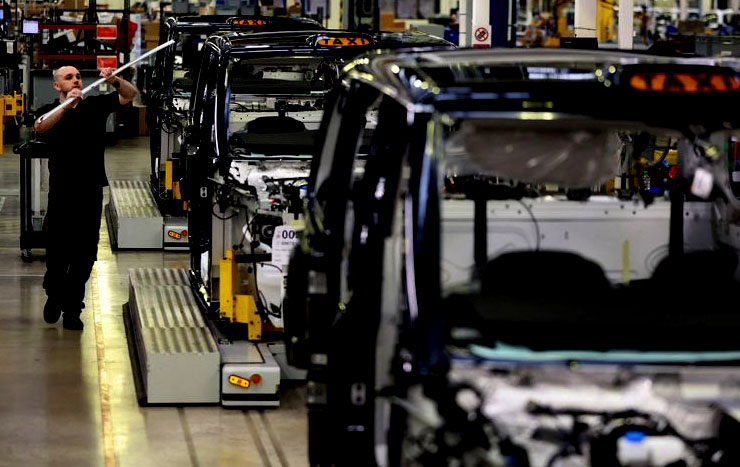Decline Persists: UK Factory Output Contracts in May, Reveals PMI Survey

According to a recent industry survey, manufacturing output in the UK experienced a consecutive decline for the third month in a row during May. Furthermore, new orders also witnessed a significant drop, marking the fastest rate of decline in four months. However, amidst these gloomy figures, there were indications that the alarming surge in inflation might be subsiding.
The final reading of the S&P Global/CIPS UK manufacturing Purchasing Managers’ Index (PMI) stood at 47.1, a decrease from April’s 47.8 and well below the critical threshold of 50 that separates growth from contraction. The provisional PMI figure had been even lower at 46.9.
The decline in May’s manufacturing output can be attributed, in part, to a decrease in new orders and a reduction in the number of working days due to an additional public holiday commemorating the coronation of King Charles.
Rob Dobson, the Director of Market Intelligence at S&P Global, acknowledged that near-term conditions remained challenging as the manufacturing downturn continued to intensify.
Notably, total new orders plummeted to 46.6 from 47.7, representing the sharpest decline since January. Factory reports highlighted subdued market confidence and an economic slowdown as contributing factors.
Despite outperforming initial predictions and avoiding a recession, the UK’s economy still lags behind other Group of Seven nations in recovering from the detrimental impacts of the COVID-19 pandemic.
S&P Global noted that overseas orders sustained a 16-month decline, primarily due to reduced demand from the United States and mainland Europe. This decline in export demand is exacerbated by some European Union clients shifting towards localized sourcing in an attempt to mitigate post-Brexit trade complications, as stated by Dobson.
Nonetheless, there were some encouraging signs of alleviating inflationary pressures that will likely be welcomed by the Bank of England. The central bank is expected to raise interest rates for the 13th consecutive time during its meeting on June 22.
S&P Global reported that average input costs among manufacturers experienced a decline in May, marking the first decrease since November 2019. Moreover, pressures on supply chains showed further signs of easing.
Following a surge in activity after the pandemic-induced lockdowns, the momentum in Britain’s manufacturing sector has noticeably waned. This can be partly attributed to factories completing the backlogs accumulated during the initial recovery phase.
Analyzing the sub-sections of the manufacturing PMI survey revealed a deterioration in trading conditions across five categories.
Nevertheless, a positive note emerged, with 57% of factories expressing an expectation of increased output in the upcoming year, representing the highest reading since March 2022.





